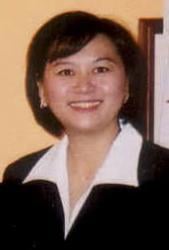Parents prefer private primary and secondary schools to state-owned ones

Private schools have become more attractive than state owned schools in the eyes of high income parents, who demand high quality education services for their children.
Flocking to enroll in private schools
For the last two months, every Sunday, “T”, who lives on Phao Dai Lang street in Dong Da street in ${bigcity_Hanoi:"Hanoi"}, has to carry her youngest daughter to the Doan Thi Diem private school. The girl is a member of the school’s Childhood Club. T said that it is very useful for her daughter to join the club, because it helps the girl become more self-confident and get necessary skills to prepare for the competitions to get a seat at private schools.
The girl has also been going to a prestigious English center for the last year.
“Two years ago, my son began going to school. At that time, I thought it was easy to get a seat at a private school. In fact, as there were too many students registering to study at private schools, the schools had to organize competitions to select the best students. As my son was timid, he failed the exams and had to go to a state owned school,” T said.
She went on to say that she does not want to repeat the same mistake, when her daughter begins going to school after the summer. Therefore, she has to prepare for the daughter right now, so that the girl can enroll in a private school.
“I want a private school which sets the tuitions between two and three million dong a month,” T said.
Sending children to private schools has been a growing trend of the high income parents in Hanoi. However, as the demand is too high while the supply is limited, small children have to attend competitions which have been described as stiffer than the university entrance exams.
Previously, only some prestigious schools were the targets of high income parents. However, as the demand has become increasingly high, nearly all private schools in Hanoi have become full of students. Even international schools which set the tuitions at high levels of several thousands dollars per annum, can also attract many students.
A representative of a newly opened private school in Hanoi said, the school has found out from a survey that the demand for going to private schools which have modern material facilities is very big.
State owned schools no more attractive in the eyes of parents
Private primary and secondary schools are believed to have better material facilities and learning conditions than state owned schools. However, this proves to be not the only thing that attract parents.
A parent who has a son going to Ban Mai School in the Ha Dong District said, that students of state owned schools not only have to go to school, but also have to go to the private tutoring classes organized by their teachers after school hours. In principle, no one can force students to go to extra classes if they do not want to. However, in fact, students have to attend such classes, which bring extra income to teachers.
Meanwhile, “KH”, a parent of a student of Bill Gate School in Bac Linh Dam new urban area, said that she felt regret sending her child to a state owned school.
“Every time when I met the teacher, she did not tell me anything about my child, but she only talked about the achievements of her class,” KH said.
“One time, my child told me that his class won the first prize in the school’s painting competition. However, the pictures which were sent to the competition, in fact, were the pictures borrowed by the teacher from the Children Palace. After that, I decided to send my child to a private school,” she added.
The parent of a girl named Anh Thu wrote on webtretho, an education forum, that her daughter once went to a state owned kindergarten. “My child likes singing and other extracurricular activities, but she was not allowed to join the team, just because she looked smaller than the classmates,” she wrote. And the mother decided to send the daughter to a private school, where all members are equally treated.









